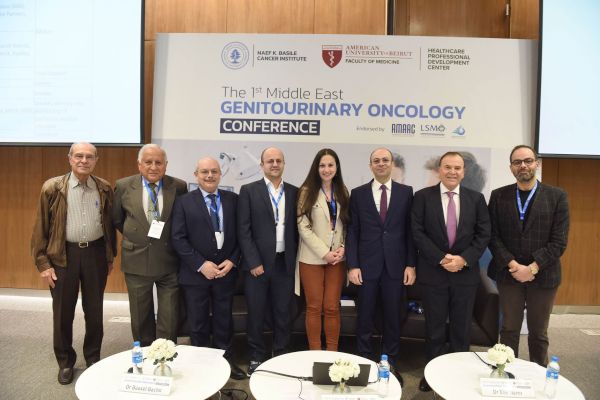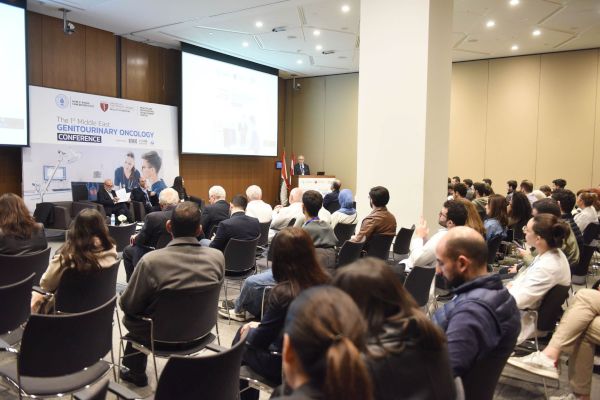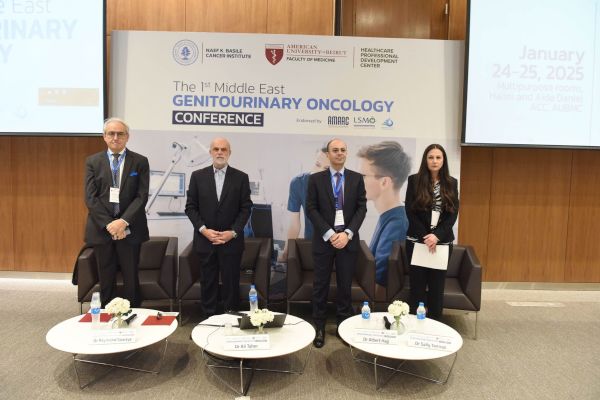
The American University of Beirut Medical Center (AUBMC) successfully hosted the First Middle East Genitourinary (GU) Cancers Conference on January 24–25, 2025, marking a pivotal moment in the advancement of genitourinary oncology in the region. This landmark event brought together leading oncologists, urologists, researchers, and healthcare professionals from across the Middle East and beyond to discuss the latest breakthroughs in the diagnosis, treatment, and management of GU cancers.
The conference provided a comprehensive platform for knowledge exchange, featuring expert-led sessions on prostate, bladder, kidney, and testicular cancers, with a strong focus on genomics, precision medicine, artificial intelligence (AI) in oncology, and global expertise exchange. Participants explored cutting-edge advancements in robotic-assisted surgeries, targeted therapies, and immunotherapies, emphasizing the growing role of AI in enhancing diagnostic accuracy and treatment decision-making.

In her opening remarks, Dr. Sally Temraz, associate professor, medical oncologist, GU specialist, and co-director of this activity shared a historical review about GU cancers. Dr. Albert El Hajj, head of the Division of Urology and co-director of this activity, highlighted the significance of global and regional collaboration and innovation in improving patient outcomes. Dr. Ali Taher, associate vice president for academic centers, development, and external affairs, and director of the NKBCI shared the role that the Naef K. Basile Cancer Institute is playing to cater for GU cancers. Dean Raymond Sawaya stressed that the burden of GU cancers in the Middle East continues to grow reaching around 20 percent of all cancers in men, and it is essential that we foster multidisciplinary approaches, harness technological advancements, and build global partnerships to ensure the best possible care for our patients.
The conference featured renowned international and regional experts who shared their insights on the latest research, clinical trials, and emerging therapeutic approaches. Interactive panel discussions, case studies, and workshops provided attendees with practical strategies to integrate evidence-based treatments into clinical practice.
A key highlight of the event was a semi-live robotic radical prostatectomy supported by Proximie technology and the discussion on the role of AI in transforming GU oncology, where specialists examined its applications in early detection, personalized treatment planning, and predictive analytics to optimize patient care. Additionally, the conference emphasized the importance of global collaboration, paving the way for future partnerships between institutions in the Middle East and leading cancer centers worldwide.

The closing session reinforced the collective commitment to advancing research, education, and patient care in GU oncology. Dr. Temraz concluded, “This conference is just the beginning of a long-term mission to enhance cancer care in the region. By working together, we can redefine the future of GU cancer treatment."
The success of the First Middle East Genitourinary Cancers Conference at AUBMC sets the stage for continued progress in the fight against GU cancers, inspiring ongoing innovation and collaboration in oncology across the region.